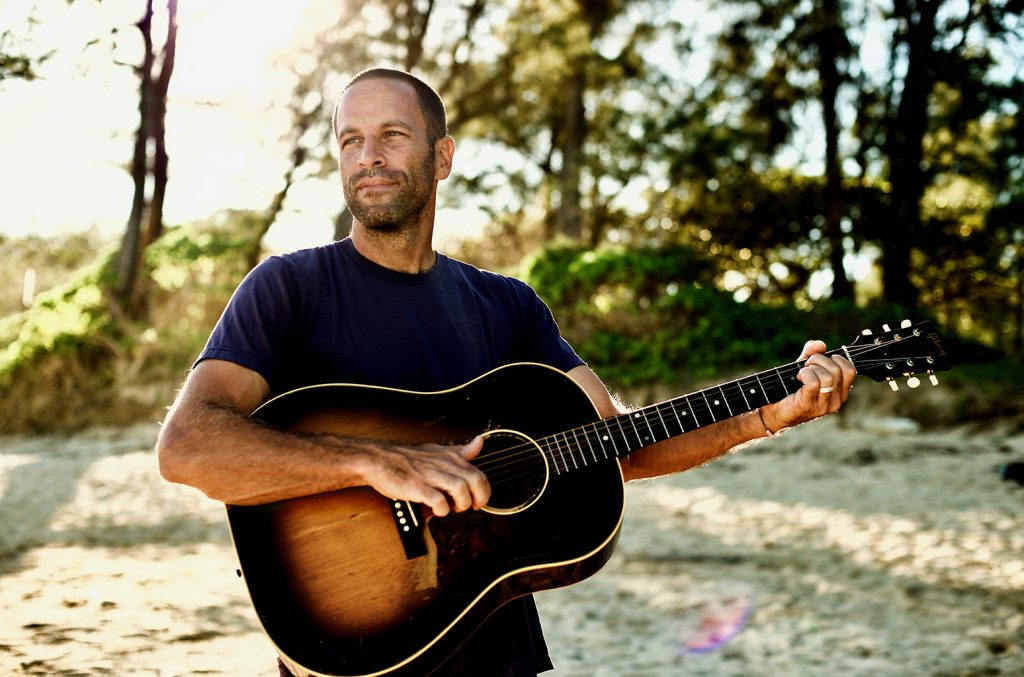This podcast was completed by Madison Auer for Popular Music, Protest, and Social Justice at St. Joseph’s University, taught by Dr. Bill Wolff. This story is part of Protest Anthems, a series of podcasts that focus on music, social justice and protest.
Most who hear or think of Jack Johnson immediately recall one of his popular hits, such as “Banana Pancakes.” Johnson has been around the music scene for some time now, first entering his career as a musician with his 2001 Brushfire Fairytales release. Jack is commonly known for his beach-y, upbeat, relaxing and acoustic sound. Much of that can be credited to his upbringing – Johnson grew up surfing the waves of Oahu, Hawaii, eventually making it to the Pipeline Masters in Oahu at 17. After suffering a gruesome surfing accident in which Johnson smashed into a coral reef and severely cut up his face, he decided to quit competitive surfing.
Some of Johnson’s most popular songs include “Banana Pancakes,” “Better Together,” as well as “Upside Down” from his Curious George soundtrack, which sold more than 149,000 copies in its first week.
Johnson certainly finds the love to share in his album, All the Light Above It Too. Released in September of 2017, All the Light Above It Too opens up a dialogue in which Johnson touches on a number of issues. Specifically, he dives deep into immigration and division through “My Mind is For Sale” which is placed within his “pro-love” album, as Johnson calls it in his interview with CNN.
Johnson states, “I try not to get angry, I try to have joyful participation…if you’re gonna participate, do it joyfully and that’s just the only way that you should do it…I’m not trying to write an anti-Trump song, I’ve heard people call it that. It’s maybe anti a few of his ideas, and if anything it’s more of a pro-love song. I try to look at something and instead of only tearing the thing down it’s like you want to replace it with something positive.”
Johnson discusses the wall, division and immigration through “My Mind is For Sale.” The wall creates immense division between the United States and immigrants. It is a major subject and concern in the media, specifically noted by CNN and deemed a “humanitarian crisis” by CBS This Morning.
Johnson’s mission to start conversations with his children and with the world through his music is especially important to him. The division at the border cripples families, separating children from their parents in unprecedented ways.
Jacob Soboroff from MSNBC News reports at the border patrol center in Texas, noting the mass amount of children that have been separated from their families. Jacob says, “This is the first time ever that children have been separated on a systematic basis from their parents and that is because of the Trump administration. People in here are locked up in cages, essentially what look like animal kennels. In this sector alone, there have been over 1100 kids separated from their parents since the policy began, and we know 2000 since early April across the entire Southern Border so there is a massive amount coming out of here.”
Especially alarming to listen to is the audio that has been taken from detention centers at the border, which shares the voices and crying of children who have just been separated from their parents and loved ones at the border.
In order to understand the scale of this separation and the severe treatment immigrants face at the border, consider the following statistics:
- Since January 2010, at least 83 people have died as the result of an encounter with U.S. border agents. Many more have been brutalized, in some cases causing life-altering injuries. The Southern Borders Committees Coalition made it their mission to track the lives of those lost while in custody at the border.
- Felipe Alonzo Gomez, Age: 8, Cause of death: Influenza B | After being in Border Patrol custody for almost a week, Felipe fell ill, was taken to the hospital, misdiagnosed with a cold, and sent back into detention. Felipe began vomiting and was taken back to the hospital, where he died before midnight on December 24, 2018.
Sadly, Felipe’s story is far from a rare case. Consider the story of 7-year-old Jakelin Caal. While in Border Patrol Custody, Jakelin began to have seizures. She was airlifted to a hospital and died less than 24 hours later from both dehydration and shock.
Deconstructing these walls that have created divisions between communities is especially important to Johnson. These divisions have not only created inequalities; they prevent individuals from seeing the humanity in others. Johnson sat down with Billboard Music to share his thoughts on these divisions. Johnson states, “To me, it’s like there’s all these metaphorical walls of just any of [Trump’s] dialogue that divides people and that builds these walls between cultures and people. [This song is] anti some of the ideas that are coming out in politics right now…it’s as much a pro-love song as it is an anti-Trump song.”
Johnson physically tears down the walls that have been built through his music video for “My Mind is For Sale.” In the video, Johnson engages in a more aggressive approach – using wooden blocks, Johnson creates walls and then knocks them down, sending wooden blocks everywhere in disarray.
Perhaps this video serves as Johnson’s call to action. Once we acknowledge the walls we have built against one another, it is our decision whether or not we knock them down. Knocking down these walls challenges the divisions and standards that have been put into place. Further, it opens the gateway to love and acceptance.
In order to spread this love, Johnson has performed “My Mind is For Sale” in a number of spaces, from his Jimmy Kimmel Live performance to his recording for World Café in Philadelphia.
Sure Jack Johnson is noted for his beach-y, laid back personality, but his presence within protest music is an essential component of his musical career. Deconstructing walls and building up love, Johnson contributes to the dialogue of immigration and division. It is up to us what we choose to do in these conversations. If it were up to me, I would knock down these walls.
What would you do?




Leave a Reply